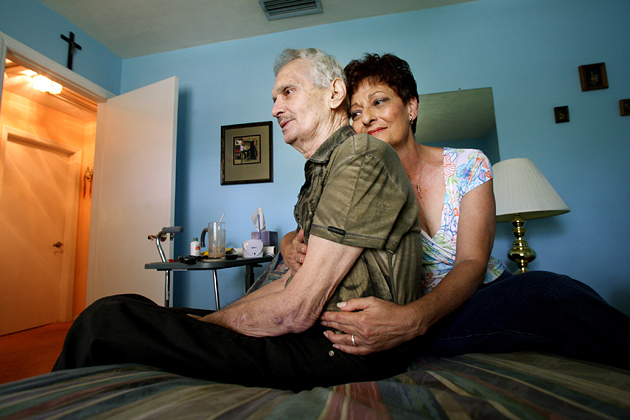We are proud to announce the launch of the CREATIVE CARE COUNCIL! LEARN MORE
We are proud to announce the launch of the CREATIVE CARE COUNCIL! LEARN MORE

And when we add in the number of professional caregivers — home care workers, certified nursing assistants, hospice caregivers, and more — we’re looking at more than 70 million people who are part of the Care Force in our country alone.
And this work isn’t easy. According to the National Alliance for Caregiving, family caregivers provide an average of 20 hours of care per week, with the majority caring for an aging loved one. And for most, caregiving isn’t limited to a few months, or even a year — NAC’s research found that caregiving lasts an average of almost five years.
Coupled with the challenges of working while caregiving — the reality for 70 percent of all caregivers — and caregiving is, in the words of one of our online members, “the most rewarding, most difficult job I’ve ever had.”
To kick off National Family Caregivers Month, we asked our Facebook community what they felt caregivers — both unpaid family caregivers and professional caregivers — need most to not only survive, but to thrive.
Here’s just a few examples of what they had to say:
Julie Schendel: Respite, recognition, support, listening ears, HELP with the care, prayers, a good laugh and, if they are paid caregivers, a wage commensurate with the critical care that they provide.
Coleen Andera: About ten clones to get everything done. An understanding boss. Time for themselves. Someone else to care enough to step in from time to time.
Mary Meyer: A good listening ear. prayer and support so when they need a break a person can fill in. Family and friends rotating days and weekends to help out with food, shopping and help them budget if they need help that is. It takes a team and there is no I in the word team.
Bonnie Odiorne: Paid caregivers need respect, both from the patients and families they serve and the employers who hire and assign them. Their passion for caring for others should be respected. Their income, reimbursements and scheduling should allow them sufficient hours to make the job sustainable, and give caregiver and client the opportunity to form a relationship. They perform a valuable service for patients who want to age with dignity, families who want their loved ones to remain in their homes. Caregivers should be sufficiently trained to perform their tasks, and observe, record and report any changes they observe to medical care workers, and know if a crisis is developing and what to do. The organizing agency I work with is supporting the issue of the rights of home care workers.
Curt Wichman: MORE MONEY for what they do!
Lori Ramos Lemasters: PROTECTION!!! Many caregivers give up their jobs, their health coverage, their financial security to age with less worry. We make decisions (healthcare and financial) for our loved ones that we are unprepared to make or misinformed and then pay the personal price when all is said and done.
Evelyn Forsyth Chupp: Compassion, support, appreciation, and understanding from family, friends and for themselves as well.
Vicki Waller Scott: Someone to talk to that understands.
Tracy Dudzinski: RESPECT!! We provide a vital service to society just like firemen and policemen and teachers.
Terri Tompkins Santos: Someone to say you’re doing a great job.
Karen Parsons Barnes: [To] just feel appreciated for all they do to help make someone’s life a little better.
Cynthia Gray-Mitchell: Support from family, friends, and employers.
Juanita Cavazos: We need me time. Time to clear our thoughts ,relax and realize we are a lot more than we give ourselves credit for.
Mary Romine: A vacation!
Kay Rademacher: A day off once in awhile!